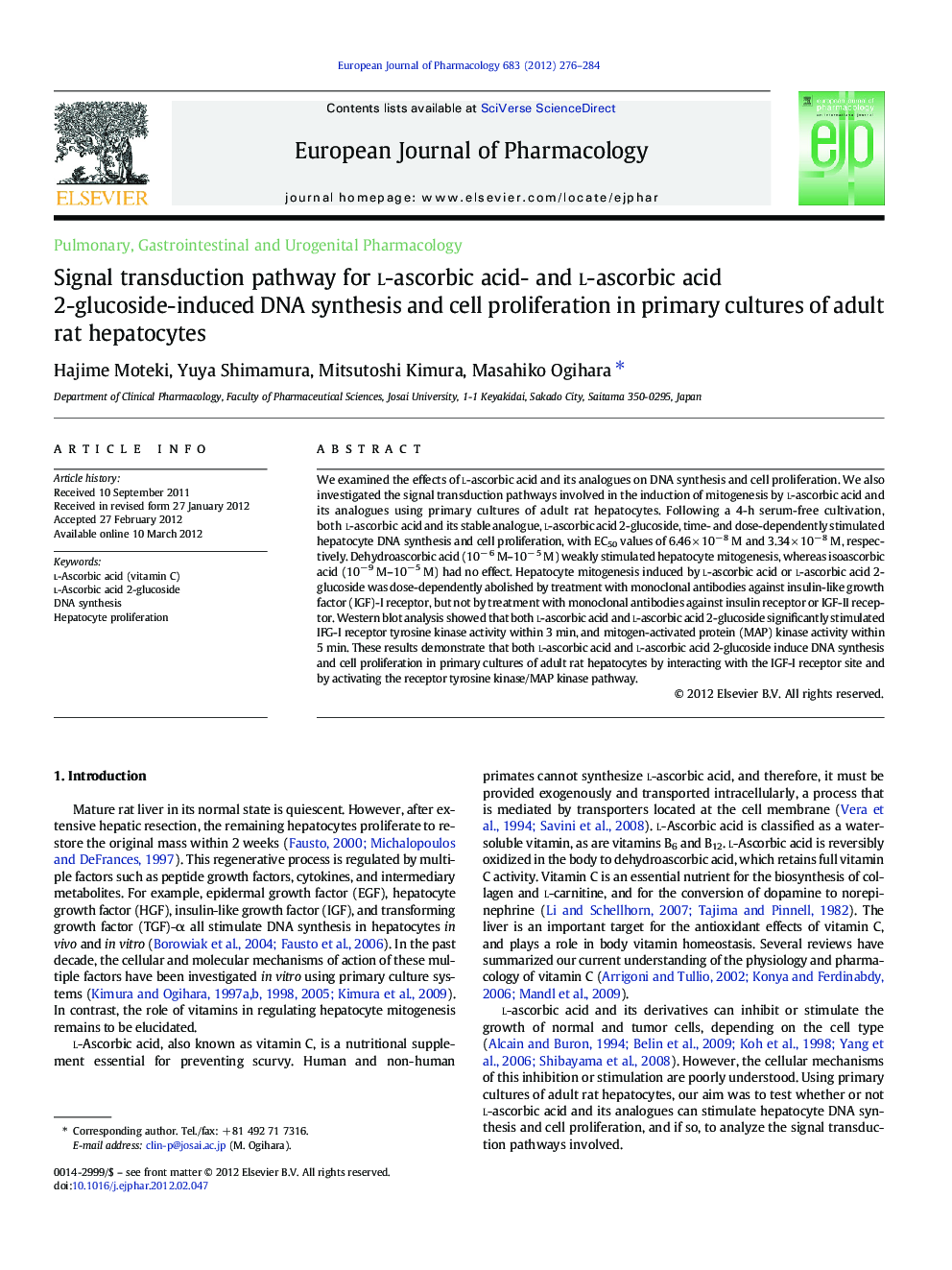| Article ID | Journal | Published Year | Pages | File Type |
|---|---|---|---|---|
| 5829653 | European Journal of Pharmacology | 2012 | 9 Pages |
We examined the effects of l-ascorbic acid and its analogues on DNA synthesis and cell proliferation. We also investigated the signal transduction pathways involved in the induction of mitogenesis by l-ascorbic acid and its analogues using primary cultures of adult rat hepatocytes. Following a 4-h serum-free cultivation, both l-ascorbic acid and its stable analogue, l-ascorbic acid 2-glucoside, time- and dose-dependently stimulated hepatocyte DNA synthesis and cell proliferation, with EC50 values of 6.46 Ã 10â 8 M and 3.34 Ã 10â 8 M, respectively. Dehydroascorbic acid (10â 6 M-10â 5 M) weakly stimulated hepatocyte mitogenesis, whereas isoascorbic acid (10â 9 M-10â 5 M) had no effect. Hepatocyte mitogenesis induced by l-ascorbic acid or l-ascorbic acid 2-glucoside was dose-dependently abolished by treatment with monoclonal antibodies against insulin-like growth factor (IGF)-I receptor, but not by treatment with monoclonal antibodies against insulin receptor or IGF-II receptor. Western blot analysis showed that both l-ascorbic acid and l-ascorbic acid 2-glucoside significantly stimulated IFG-I receptor tyrosine kinase activity within 3 min, and mitogen-activated protein (MAP) kinase activity within 5 min. These results demonstrate that both l-ascorbic acid and l-ascorbic acid 2-glucoside induce DNA synthesis and cell proliferation in primary cultures of adult rat hepatocytes by interacting with the IGF-I receptor site and by activating the receptor tyrosine kinase/MAP kinase pathway.
